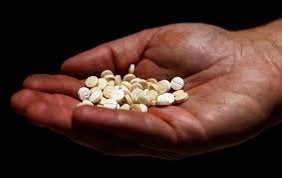Drug bust in Iraq as 80 kilograms of Captagon pills seized

In a concerted effort to combat drug smuggling activities, the Iraqi Ministry of Interior made a significant announcement on Wednesday regarding the interception of 80 kilograms of Captagon pills in the western Iraqi governorate of Anbar.
The operation also led to the apprehension of four suspects involved in the illicit trade, according to statements released by Miqdad Miri, spokesperson for the Iraqi Ministry of Interior, as reported by the Iraqi News Agency (INA).
The General Directorate of Narcotics Control, under the purview of the Iraqi Ministry of Interior, orchestrated the seizure of the 80 kilograms of Captagon in Anbar. Alongside the confiscation, authorities successfully detained four individuals deemed to be dangerous suspects in connection with the illegal drug trade. This development underscores the ongoing efforts by the Iraqi government to curb the proliferation of narcotics within its borders.
Despite concerted measures undertaken by Iraqi authorities to stem the tide of drug trafficking, there has been a worrisome escalation in the number of drug addicts and traffickers across the country in recent years. In response to this growing menace, the interior ministries of Syria, Lebanon, Iraq, Jordan, and Syria announced plans last week to establish a cooperative communications unit aimed at bolstering regional efforts to combat drug trafficking.
Last July, Iraqi security forces made a pivotal discovery when they uncovered a Captagon production facility in the Muthanna governorate in southern Iraq, marking the first such instance in the country’s history. This revelation underscores the pervasive nature of drug trafficking within Iraq, with experts estimating its total worth to exceed $10 billion, highlighting the immense financial incentives driving this illicit trade.
Captagon, an amphetamine-like stimulant notorious for its prevalence in the Middle East, has long plagued Iraq as a transit country. However, reports indicate that it has increasingly become a consumer market for the drug as well. Notably, Captagon has never received approval from the US Food and Drug Administration (FDA) and was classified as a controlled substance in 1981 due to its addictive properties outweighing any clinical benefits.
Despite being outlawed in nearly every country by 1986, illegal production of Captagon has persisted, posing significant challenges to law enforcement agencies tasked with combating its proliferation. The recent seizure in Anbar serves as a stark reminder of the ongoing battle against drug trafficking and the imperative for continued vigilance and cooperation among regional authorities to address this multifaceted threat effectively.







